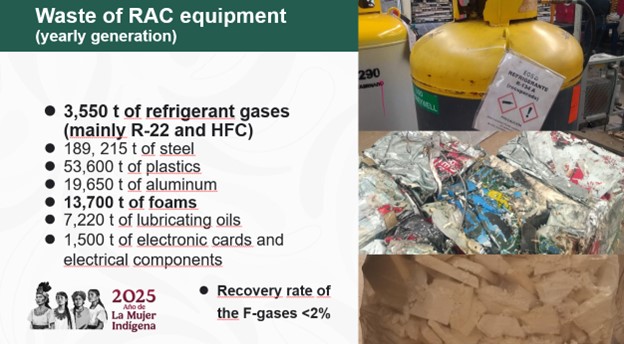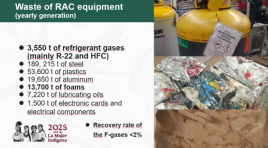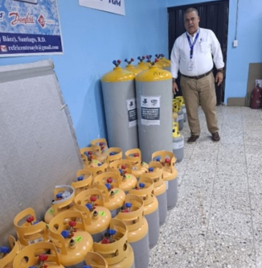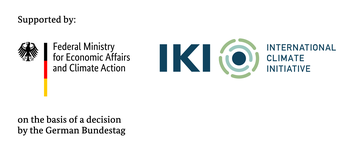
Online Event
Implementation Models WG
2nd COPA Implementation Models Working Group meeting showcases Mexico and Dominican Republic’s approaches to lifecycle refrigerant management
The Climate and Ozone Protection Alliance (COPA) convened the second meeting of its Implementation Models Working Group, bringing together members to exchange lessons and explore practical approaches for lifecycle refrigerant management (LRM).
With global banks of ozone-depleting substances (ODS) and hydrofluorocarbons (HFCs) projected to release up to 90 gigatons of carbon dioxide-equivalent emissions by 2050 if left unmanaged, the session underscored the urgency of developing effective national systems for recovery, reclamation, and destruction.
Bettina Schreck, international expert at HEAT GmbH and focal point for the COPA implementation models working group, noted that while earlier policy efforts under the Montreal Protocol focused mainly on phase-out and destruction technologies, recent decisions have broadened to include full lifecycle management – from recovery and reclamation to destruction. She also highlighted new financing windows under the Multilateral Fund (MLF), with 43 countries already requesting support to prepare national inventories and plans for managing ODS/HFC banks.
Participants heard case studies from Mexico and the Dominican Republic, each offering distinct insights:
Mexico, presented by Teresa Zárate KIP Coordinator at the National Ozone Unit, shared its progress in developing a comprehensive national approach to refrigerant management. Mexico operates a growing network of over 25 recovery and recycling centers, supported by MLF funding, and has two authorized destruction facilities – one using cement kiln co-processing and another employing rotary technology. The country is now preparing its national inventory of refrigerant banks, strengthening extended producer responsibility schemes, and piloting destruction of high-GWP HFCs such as R-22. Mexico’s work also emphasizes building circular economy models in the RAC sector, integrating informal collectors, and aligning refrigerant management with energy efficiency initiatives.
Dominican Republic, whose experience was presented on behalf of the National Ozone Unit by Bettina Schreck, is exploring a public-private partnership model to establish a national reclamation center. A baseline study revealed that while informal technicians handle much of the servicing market, awareness of anti-venting rules remains low, and recovery equipment is underused. Stakeholders expressed strong interest in regenerating refrigerants domestically rather than exporting them for destruction, highlighting the importance of building national infrastructure and sustainable financing mechanisms. An action plan was developed, envisioning funding through import fees, contributions from refrigerant sales, and technician incentives. In discussions, members emphasized the critical role of technicians in recovery and reclamation. Questions from participants raised the importance of training, incentives, and international best practices. The meeting also touched on innovative financing approaches, including the potential role of voluntary carbon markets for destruction activities.
Samuel Jacobs, Chair of the COPA Steering Committee, encouraged members to look beyond end-of-life infrastructure and consider the full refrigerant lifecycle – from manufacturing and installation through servicing and maintenance – where new opportunities could emerge. He underscored the value of demonstration projects with natural refrigerants, digital tools to help end-users manage refrigerants more effectively, and stronger training and accreditation systems to ensure reclaimed refrigerants meet standards. He also stressed that members’ expertise will be key and noted that the Steering Committee will use gap analyses and closer coordination across thematic groups to avoid duplication and ensure resources deliver results.
Overall, the session reinforced that while each country’s circumstances differ, shared lessons are emerging: the need for clear institutional roles, sustainable financing, expanded technician training, and infrastructure that supports both reclamation and destruction.
For more details, you can download the presentations (pdf) and access the meeting recording (video) here.
Visit the COPA IMWG website for information on how to join the group-discussions.


